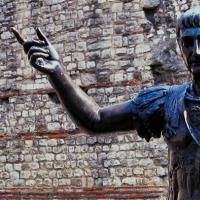Hajj - the annual congress of Muslims around the world
In the Qur'an, more precisely in the 196th verse of the sura "Al-Baqarah" and in the 97th verse of the sura "Alu Imran".
And in the hadith of the Prophet (peace and blessings be upon him) it says: O people, indeed Allah has obligated you to perform Hajj. Do it. Whoever sincerely commits it, without swearing or sinning, is cleansed of sins as on the day of his birth. Umrah (small pilgrimage) until the next umrah is the expiation of sins between them. The only reward for completing Hajj is Paradise "(Ahmad).
Hajj is of great importance for Muslims both in this world and in the world to come. Hajj improves the physical condition of a person, cultivates generosity in him, helps to feel the equality of all slaves before Allah, reminds of the Day of Judgment, strengthens the bonds of brotherhood between Muslims and unites them, promotes their unity. Hajj reminds us of the history of the prophets and their companions, provides an opportunity to visit many shrines (ziyarats) of Islam, cleanses the heart and soul of a person. It contains many other obvious and hidden blessings and wisdom. The Messenger of Allah (peace and blessings be upon him) said that one who, having the opportunity, did not perform the Hajj, will not be a true Muslim. Therefore, a person who has the opportunity to perform the Hajj should learn the rules for its implementation and make the pilgrimage as soon as possible.
Pilgrimage- the most important ritual, without which faith loses its usefulness. The Prophet (peace and blessings be upon him) also noted that the shaitan is never so humiliated, despised, disgraced and angry as on the day the pilgrims stay in the Arafah area, for he sees how the grace and mercy of Allah descends on people and their sins are forgiven. It is said that among the sins there are those that are forgiven only by staying in the area of Arafah.
Once the damned shaitan appeared to the Prophet (peace and blessings be upon him) in the form of a wanderer standing on Araf, thin, yellow, whiny and hunched over. The Messenger of Allah (peace and blessings be upon him) asked him:
- Why are you shedding tears, why are you emaciated, why have you changed your face, why are you hunched over?
To which Iblis replied:
“Because of the many people rushing here. I'm afraid that their hopes will come true, and that's why I feel anguish. From the neighing of horses on the way to Allah: if the horsemen hurried to me, it would be better. From the consent of people to be obedient to Allah: if they obeyed me, it would be better. From the words of the servant of Allah, who asked for the death of the righteous for himself. Woe is me! He really is one of those who know, if he is capable of such an amazing act.
In the hadeeth of the Messenger of Allah (peace and blessings be upon him) it is said, that if someone left his home for the purpose of performing the Hajj or died and died on the way, then a reward equal to the reward for performing the Hajj every year before the Day of Judgment is recorded for him. The one who died in one of the two Holy cities - Mecca or Medina, on the Day of Judgment will not be interrogated, and he will be sent to Paradise .
Hajj- this is a universal worship, for it is performed both with property and with the body.
Hajj differs from other pillars of Islam in that it is performed only at a certain time and in a certain place on the earth, while such pillars of Islam as prayer, fasting, zakat can be performed anywhere in the world.
Allah Almighty has established rules and laws for His servants in such a way that the person who commits them benefits both in this life and in the Hereafter. The Holy Quran, talking about the Hajj, mentions the benefits and wisdom contained in this pillar of Islam.
Some Wisdom of Pilgrimage
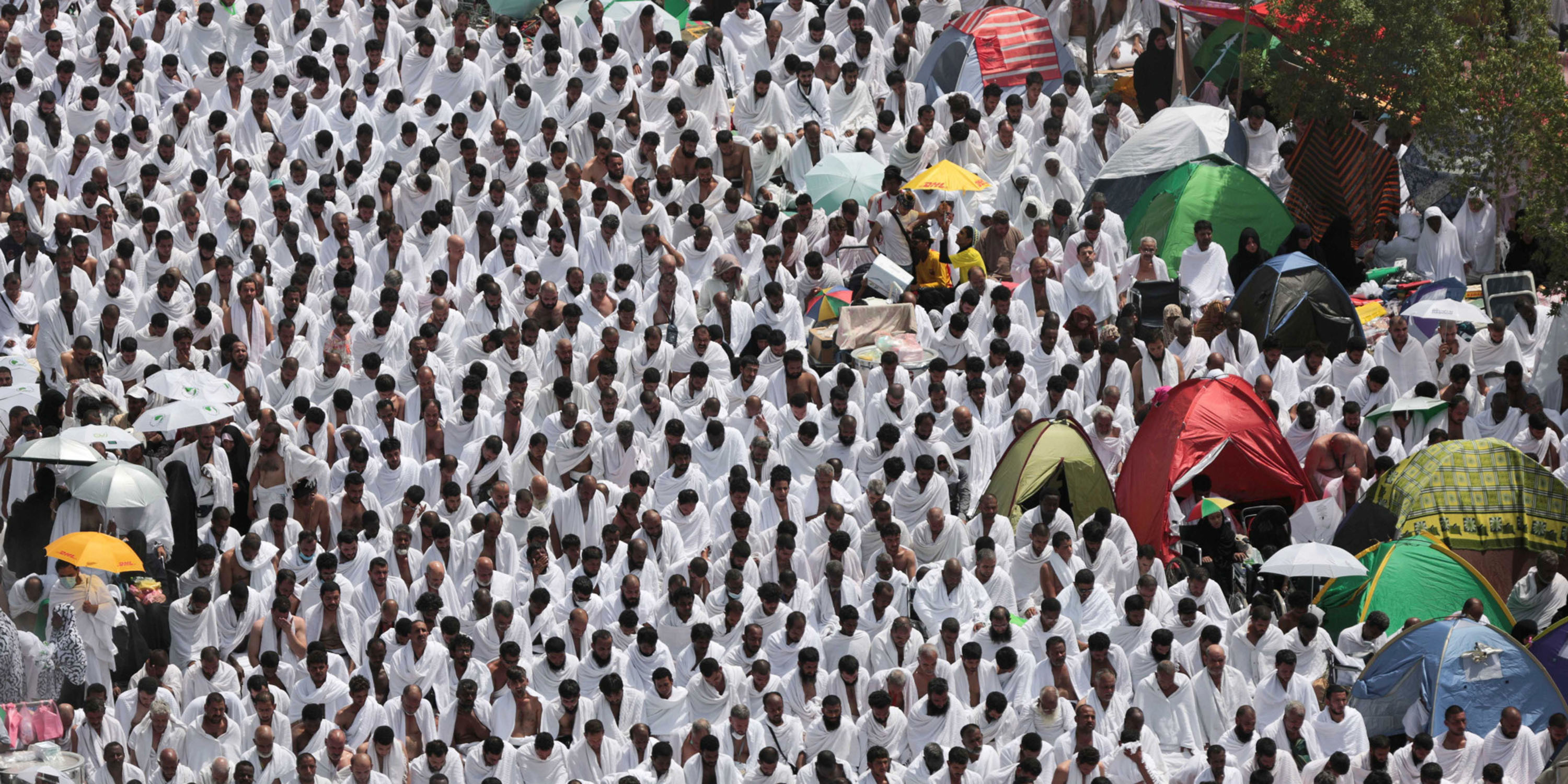
1. Muslim unification. Islam emphasizes warm, friendly relations among Muslims. The precepts of Islam contribute to the rallying and unity of Muslims. For example, residents of one block meet five times a day at a nearby mosque, performing the obligatory collective prayer there. Residents of each settlement are ordered to gather in the mosque for Friday prayers once a week. And all Muslims of the planet have the opportunity to meet once a year for the Hajj. The Hajj is the largest regular Muslim conference in the world.
2. The revival of a real Muslim brotherhood. All Muslims, regardless of race, nationality, perform the same rites and rituals, ask the Lord - the One for all, turn in the same direction, i.e. towards the Kaaba.
3. The attraction of all Muslims, no matter how far they are, to the center of the Islamic world - Blessed Mecca, from which the light of the religion of Allah spread throughout the world.
4. Manifestation of equality among Muslims. When observing the rites of the Hajj, any privileges are excluded: master and servant, minister and worker - all are on the same level. Indeed, here is a place that reminds of the equality of all people before Allah. Also, the Hajj is a reminder of the Day of Judgment, when everyone will stand before the Lord without clothes, in fear of interrogation, where neither the nobility of the family, nor property, nor position in society will help.
5. Hajj is a reminder to Muslims of their pious ancestors- prophets and messengers, so that believers can be deeply inspired and faith strengthened in their hearts. Each place where the Hajj ceremony is performed is associated with some historical event.
First of all, let us remember the first man on earth - Adama (peace be upon him), who for the first time barefoot, covered only with a cloak, made a seven-fold circumambulation of the Kaaba. In front of the Kaaba, the pilgrim presents the image of the messengers of Allah Ibrahim (peace be upon him) and Ismail (peace be upon him), who rebuilt the Kaaba after the Flood.
Also, believers represent the Prophet Muhammad (peace and blessings be upon him), who helped with the restoration of the Kaaba, made a detour around it, kissed the sacred stone "Al-Hajar al-aswad". The hills of Safa and Marwa remind the pilgrim of Hajar, who was looking for water for her son and the future Prophet Ismail (peace be upon him).
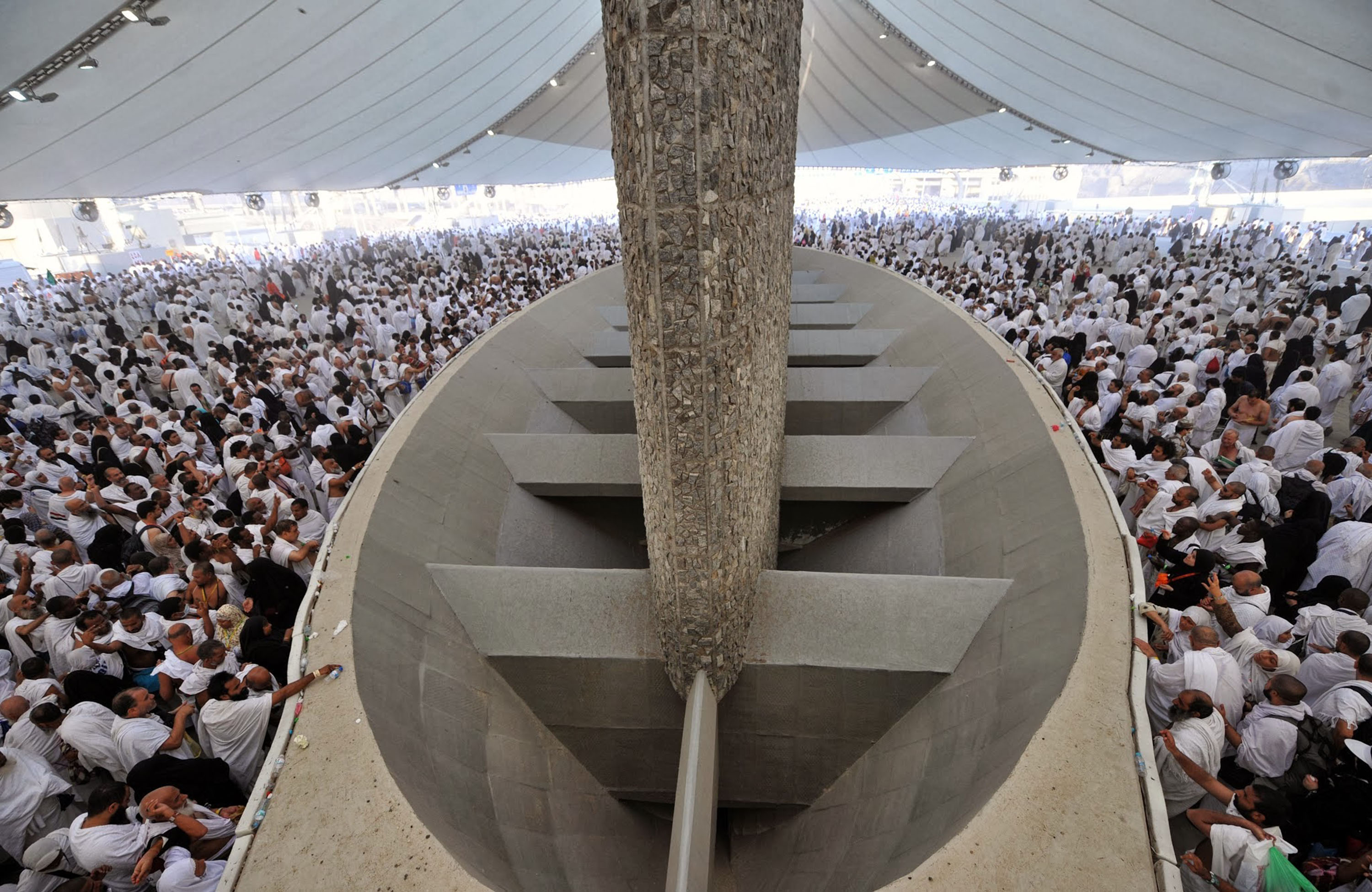
Being in Mina, where pebbles are thrown, he recalls the Prophet Ibrahim (peace be upon him), who in this place drove away Satan from himself by throwing stones at him, and the Prophet Ismail (peace be upon him), whom his father led from there to be sacrificed. Standing on Mount Arafa recalls the first meeting of our forefathers Adam (peace be upon him) and Chava on this mountain, and therefore in some sources it is called the mountain of meetings and expectations.
On Arafah, the believer represents the image of the Messenger of Allah (peace and blessings be upon him), who, making a farewell Hajj, bequeathed to the believers: “O people, your Lord is One, and you are all the offspring of Adam, Adam was created from the earth, and there is no advantage for an Arab over a non-Arab, except in piety. And after me, do not be like unbelievers who are at enmity with one another... ».
6. Hajj is the education of the pilgrim when he, while on the road and facing various difficulties and inconveniences, must show patience (sabra). On the Hajj, a large number of Muslims meet in one place, and here it is necessary to show steadfastness in overcoming difficulties, modesty, tact, and pliability. Hajj also cultivates generosity in a person when he slaughters a sacrificial animal on the day of Eid al-Adha or when he distributes alms to the poor.
Conditions for the obligatory performance of the Hajj
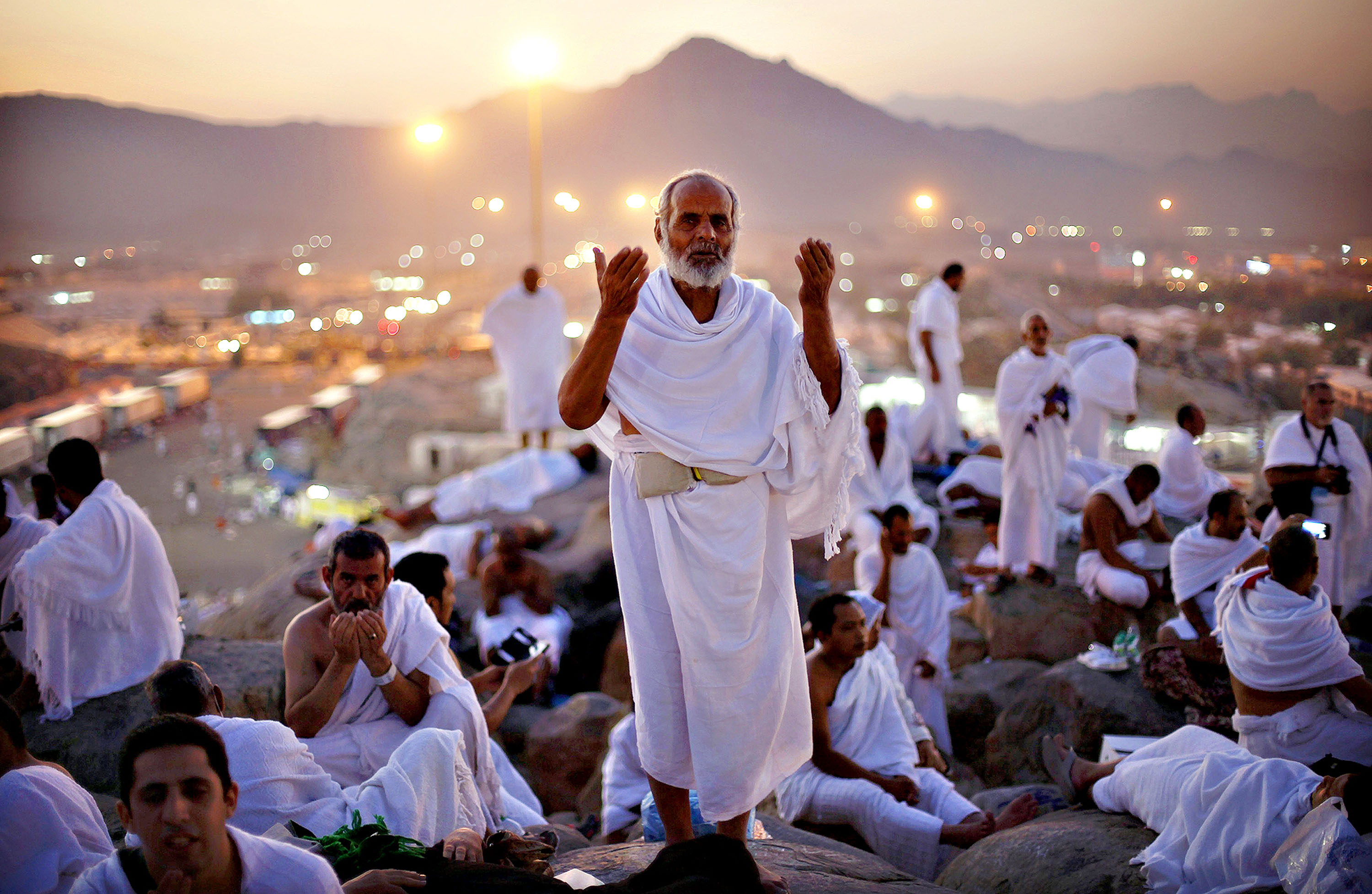
If the following six conditions are met, the Hajj becomes obligatory for every person:
1. coming of age .
2. Profession of the religion of Islam .
3. Sanity of mind .
4. personal freedom .
5. Path safety .
6. material and physical ability .
The opportunity is considered in two ways: the availability of transport and the means necessary for living and maintaining during the Hajj period and being on the road. A woman additionally needs an accompanying close relative (mahram). If the pilgrim has dependents, then he must leave them funds sufficient until his return. Anyone who, due to health reasons, cannot perform the Hajj, but has the material opportunity to do so, must authorize another person to perform the Hajj for himself.
The main components (lasso) of the Hajj
When studying the order and norms of pilgrimage, it is necessary to pay special attention to its main components (lasso), without which the Hajj is not valid.
Hajj consists of the following six obligatory components:
1. Intention along with putting on ihram (special unsewn clothing consisting of two pieces of matter).
2. Stay in Arafah the ninth day of the month of Dhul Hijjah.
3. Tawaf- detour around the Kaaba.
4. Walking (sayu) between Safa and Marwa hills.
5. Haircut or shaving(at least three hairs need to be removed).
6. Compliance with the sequence of execution in most arcana .
Necessary actions (wajibs) of Hajj
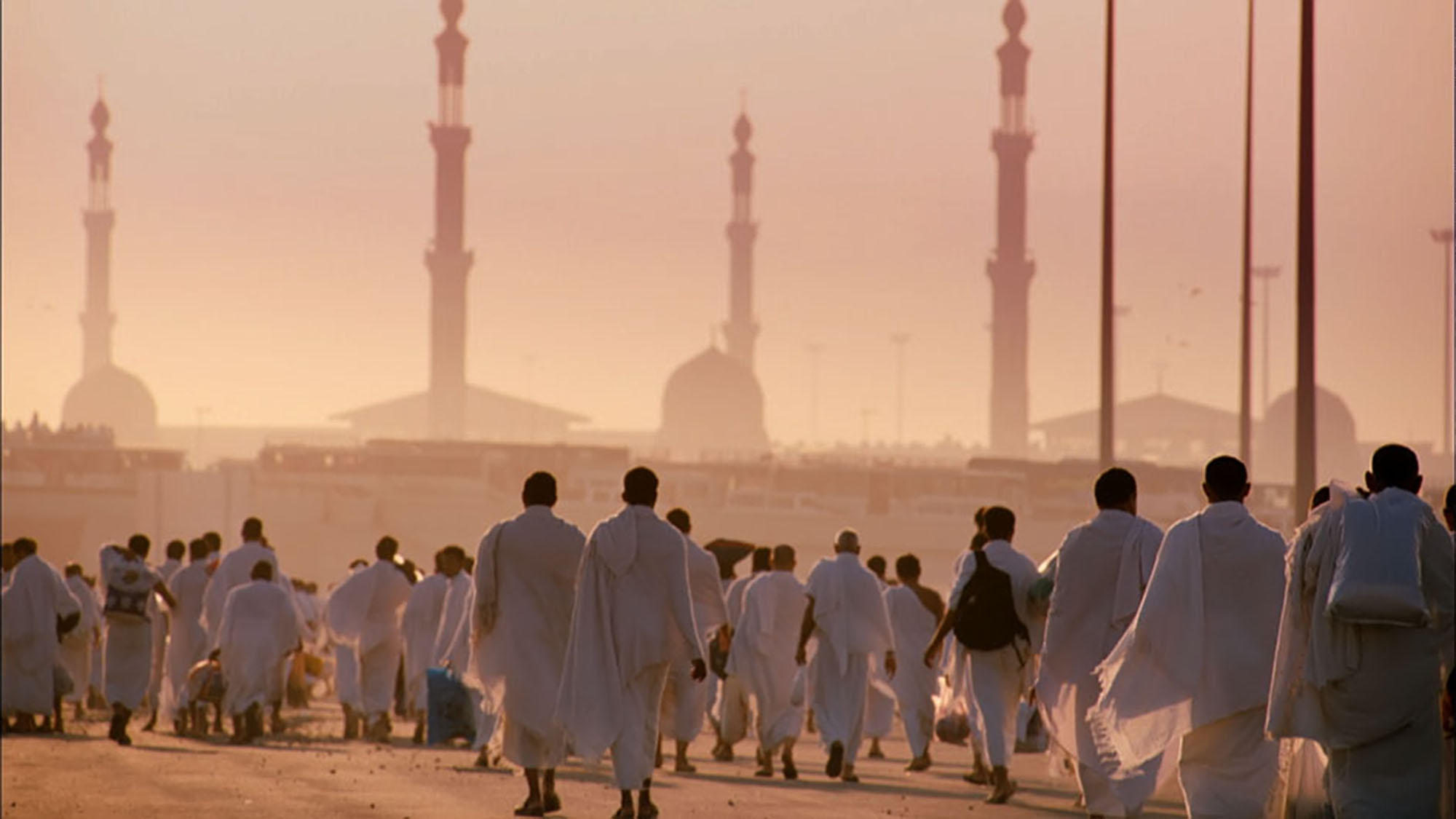
It is necessary to pay special attention to the wajibs of the Hajj. They are also mandatory, but if you miss any of them, then the Hajj is not violated, but it is mandatory to pay a fine for this.
Hajj has five necessary actions:
1. Entering the Hajj at Miqat (the place of entry into the hajj. Pilgrims arriving from Russia usually enter the hajj in a miqat called Zul-Khulayfa. It is not far from Medina. This place is also called Abaru Ali).
2. Spending the night in Muzdalifah .
3. Spending nights on tashriq days (after the Feast of the Sacrifice) in the Mina Valley.
4. Throwing pebbles (in a certain place).
5. Farewell tawaf around the Kaaba .
If at least one of the above five points is not performed, then this person on the Hajj must pay a fine.
Actions forbidden for those who have entered the Hajj
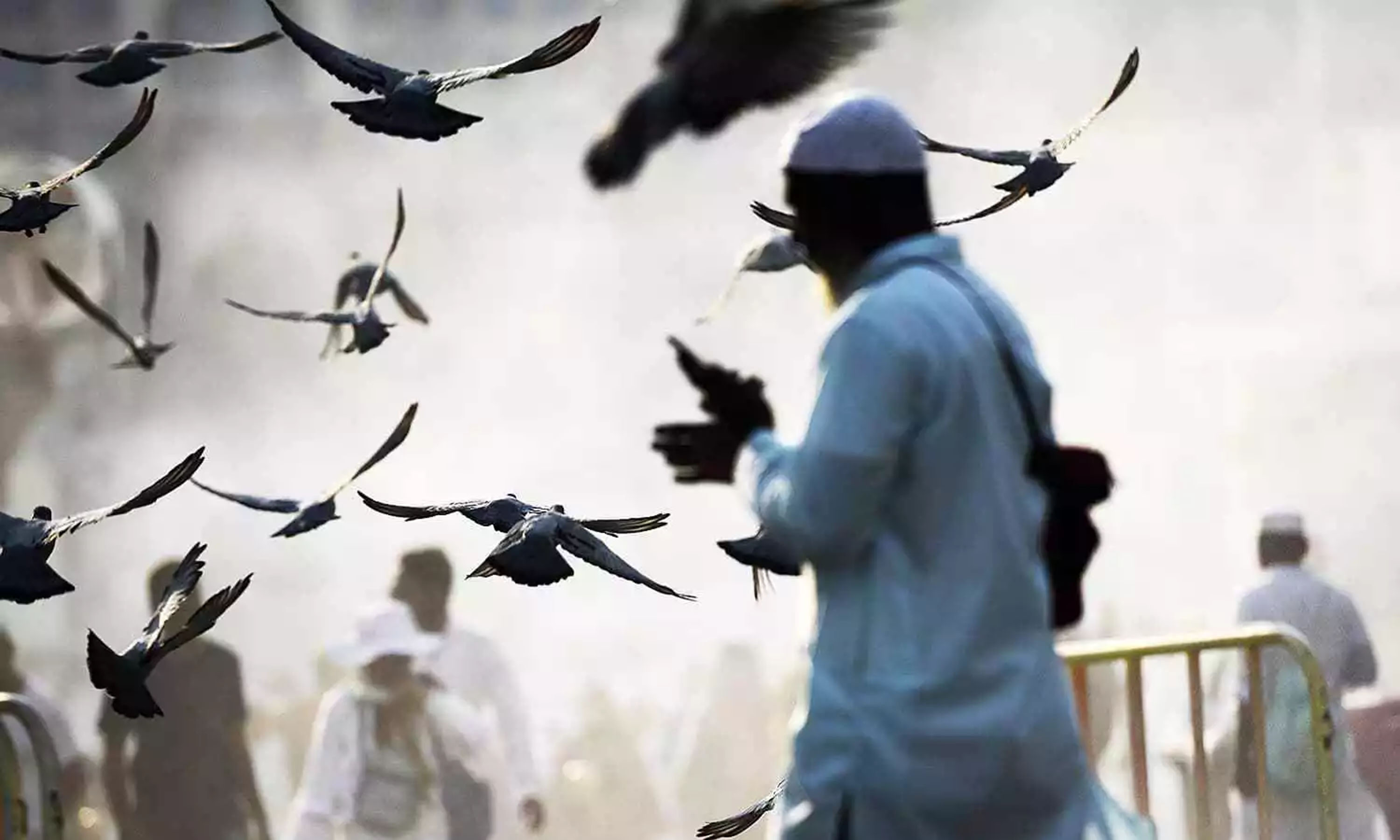
It is also very important to know the forbidden and permitted actions during the Hajj. After entering the Hajj or Umrah, until their completion, pilgrims are prohibited from:
1. Copulation with wife and foreplay preceding it.
2. Performing a marriage ceremony (for oneself or for others).
3. The use of incense (the incense with which the pilgrim perfumed himself before entering the Hajj will not damage the validity of the Hajj).
4. Contact of any fats or oils with facial or scalp hair.
5. Removal of at least one hair from any part of the body (if the hair fell by itself, then this is not taken into account).
6. Cutting off even a small part of the nail (it is allowed to remove a broken and interfering nail).
7. Men - wearing sewn clothes and shoes with a closed front or back, covering the head with a hat or something else. For women, cover the face and hands.
8. Hunting in the territory of the Haram, as well as damage to vegetation in the territory of the Haram.
Deliberately committing the acts listed above without good reasons from the point of view of Shariah is a sin, and therefore it is necessary to repent of this and pay a fine. After throwing pebbles and removing hair, all prohibitions are removed, except for intimacy with the wife. And this is allowed only after the complete completion of the Hajj, that is, after the completion of all the arcana.
Varieties of fines on the Hajj
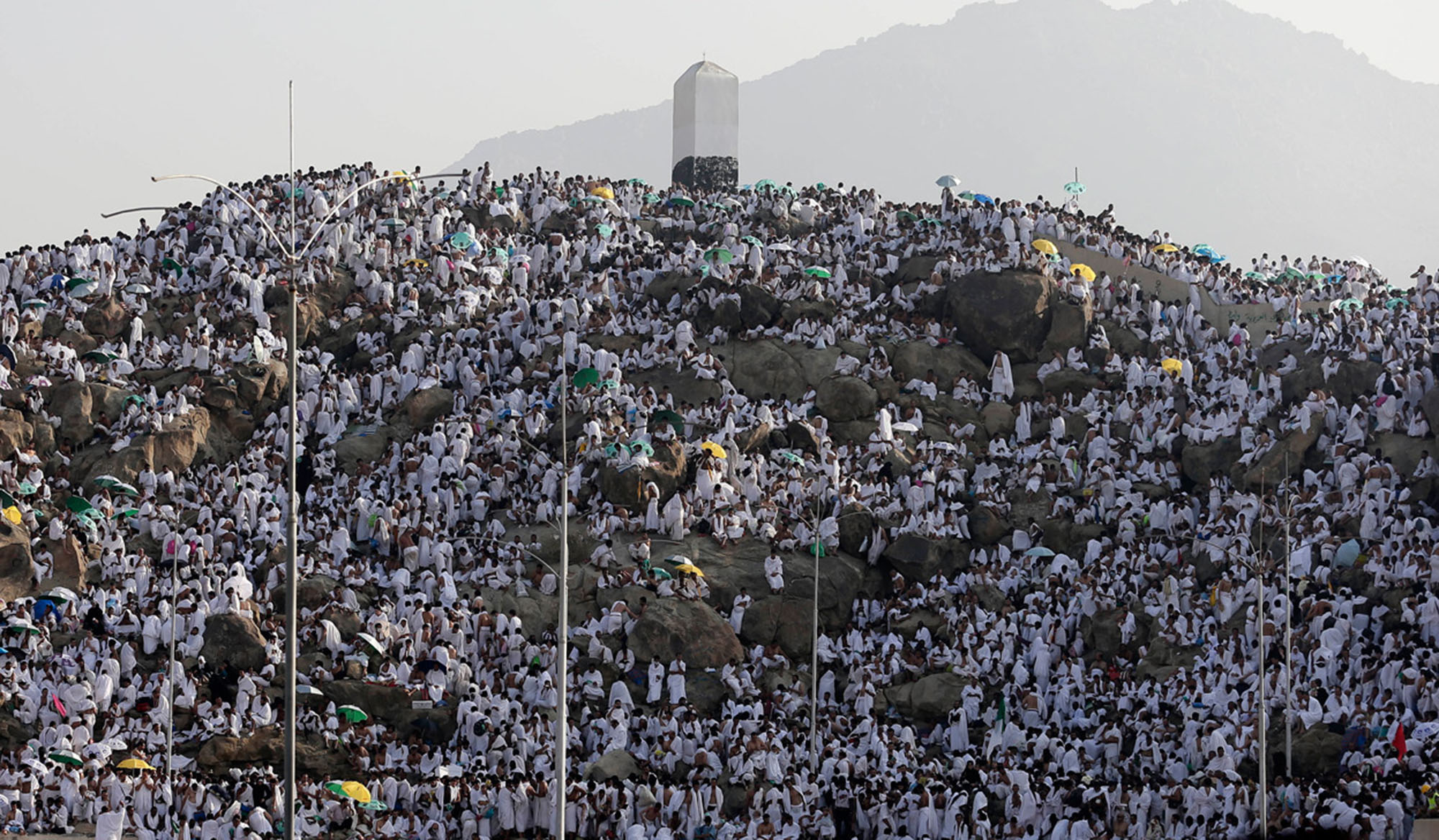
There are five types of Hajj penalty:
1. For failure to take necessary action- fine - sacrifice of a ram; if this is not possible, then it is necessary to fast for ten days (three days on the Hajj, seven in the homeland).
2. If a pilgrim removed three or more hair or nails at the same time, perfumed himself with incense, deliberately covered his head, put on sewn clothes, oiled his head or beard with oil, kissed his wife before throwing stones on the day of Eid al-Adha, then he should repent and choose one of the following three expiatory procedures: slaughter a ram, observe a fast for three days, or give three saa (that is, seven and a half kilograms of wheat) to six poor people.
For one removed hair or nail, a fine should be paid - one mudd (about 650 g) of wheat. For two hairs or two nails - two muddas.
3. For killing game, cutting down a tree - a fine - equivalent to game or a tree.
4. For intimacy with his wife. If a pilgrim deliberately copulates with his wife before throwing stones on the day of the feast of sacrifices and cutting hair, then his hajj is completely spoiled. However, he should perform the rites of this Hajj to the end, and then he must be reimbursed next year. In addition, as a penalty, he must slaughter the camel, this is the responsibility of the husband.
5. For interrupting the Hajj - a fine - a sacrifice of a ram.
Ethics of visiting the shrine of the Messenger of Allah (peace and blessings be upon him)
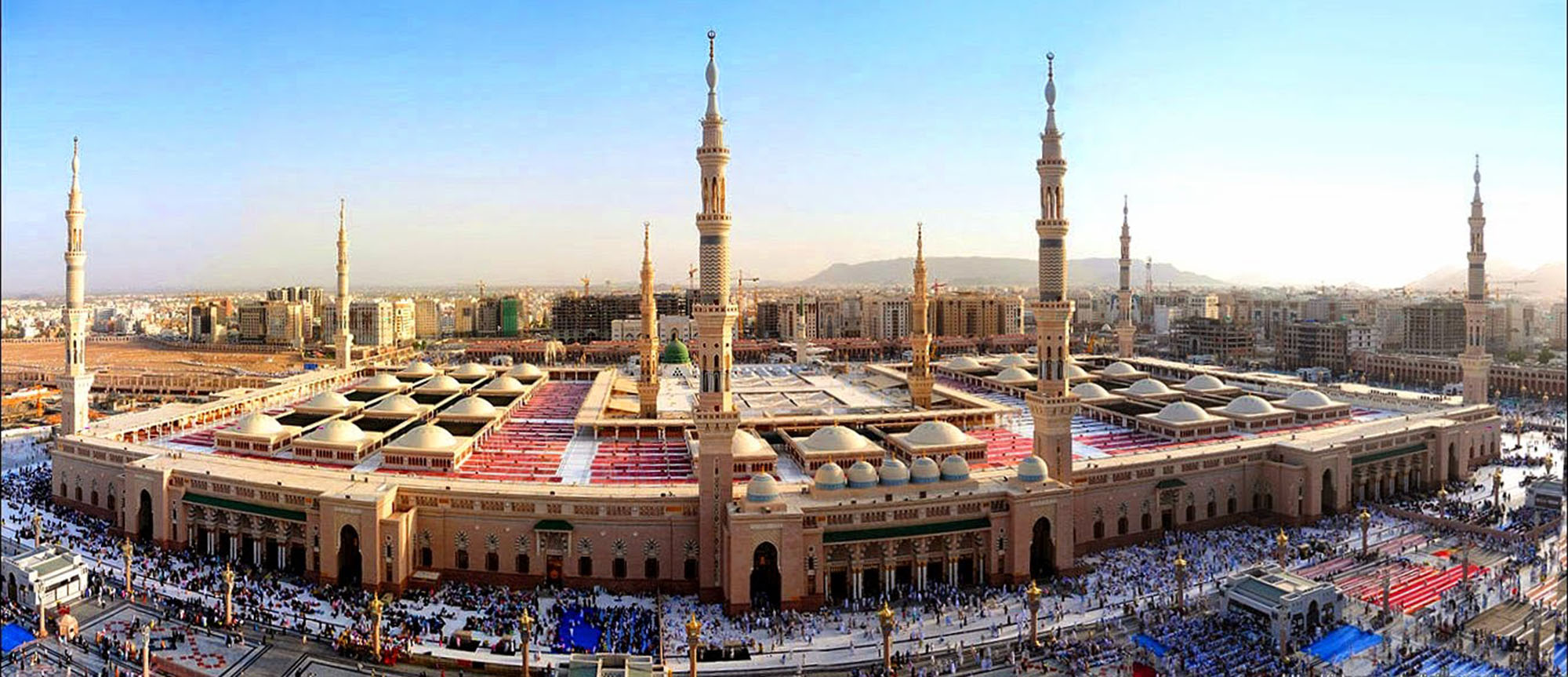
Visiting the grave of the Prophet (peace and blessings be upon him) is a very important Sunnah for a pilgrim and one of the best deeds that bring him closer to Allah. The imams of all four madhhabs agreed on this, because the hadiths also testify to this.
It is advisable for those traveling to Medina to bless the Prophet (peace and blessings be upon him) more, when approaching Medina it is recommended to perform a full ablution, cut their nails, remove hair, put on clean clothes and perfume (if the person is not already in ihram). If possible, it is advisable to go to the Medina on foot. You also need to go with humility, tenderness, with sadness that you could not see the Prophet (peace and blessings be upon him) alive, in order to have the hope of seeing him in Eternal Life.
As you approach the mosque, you need to renew your repentance, give alms, for there is a command from the Almighty to give alms before visiting the Prophet (peace and blessings be upon him). At the gates of the mosque, one should linger a little, asking with one's heart for permission to enter. You need to enter the mosque with your right foot. Then you should perform salat there (tahiya). After prayer with Khuzur, that is, remembering Allah all the time, they approach the grave of the Prophet (peace and blessings be upon him), and, standing in front of him, bowing his head and closing his eyes, you should quietly greet the Prophet (peace and blessings be upon him), as if he stands in front of you.
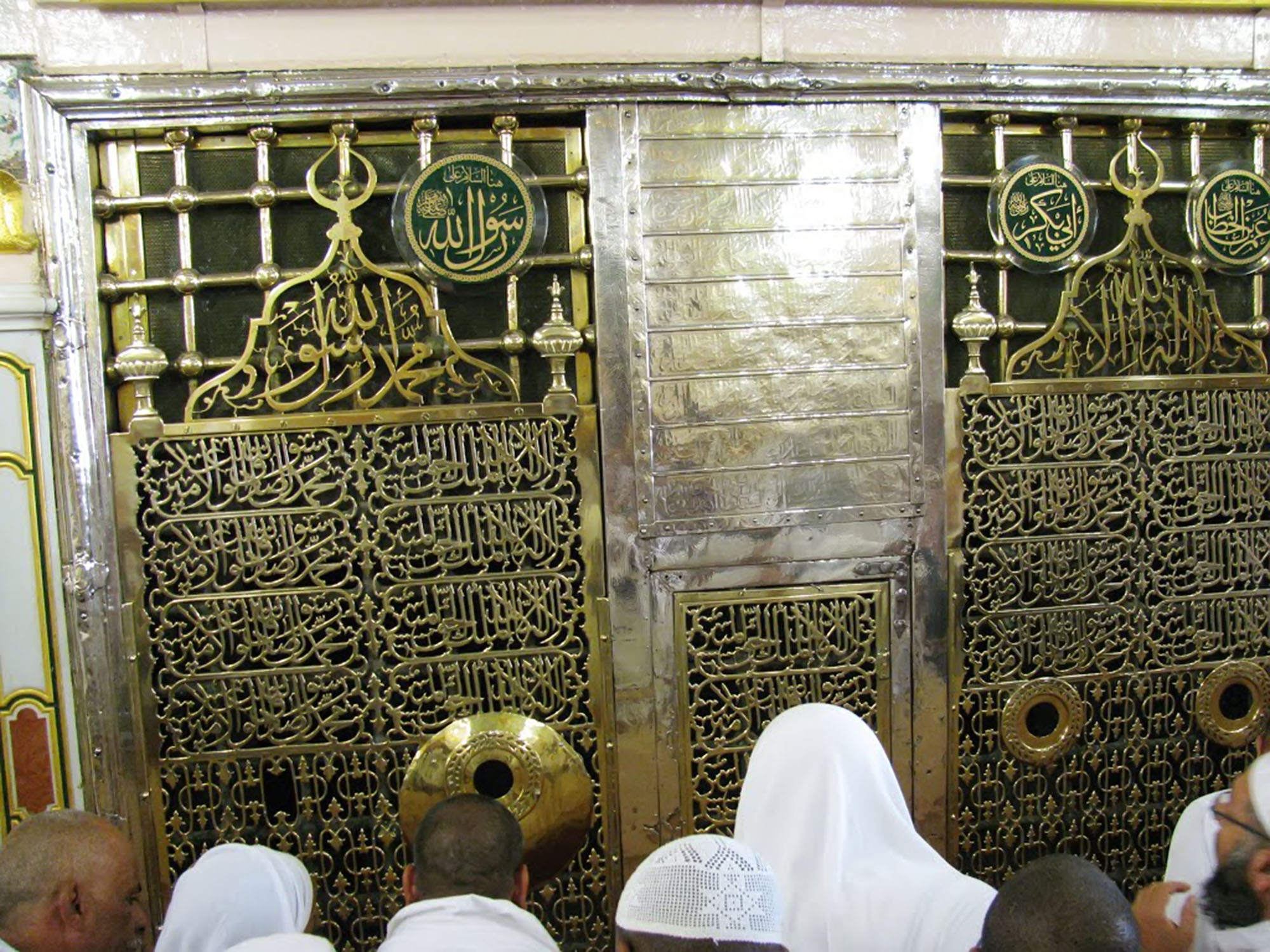
Abu Bakr and Umar are also welcomed, may Allah be pleased with them. Further, turning towards the Qibla, they read the dua and turn to Allah, asking to endow us with the intercession of the Prophet (peace and blessings be upon him). And they ask the Prophet (peace and blessings be upon him) to intercede for us on the Day of Judgment.
After that, they perform ziyarat at the Baki cemetery and read a prayer to the deceased there.
Let those who wish to start life from scratch begin the pilgrimage with sincere intention, and the main sign of the acceptance of the Hajj by the Almighty is a change in the character of a person for the better after it is performed.
Note
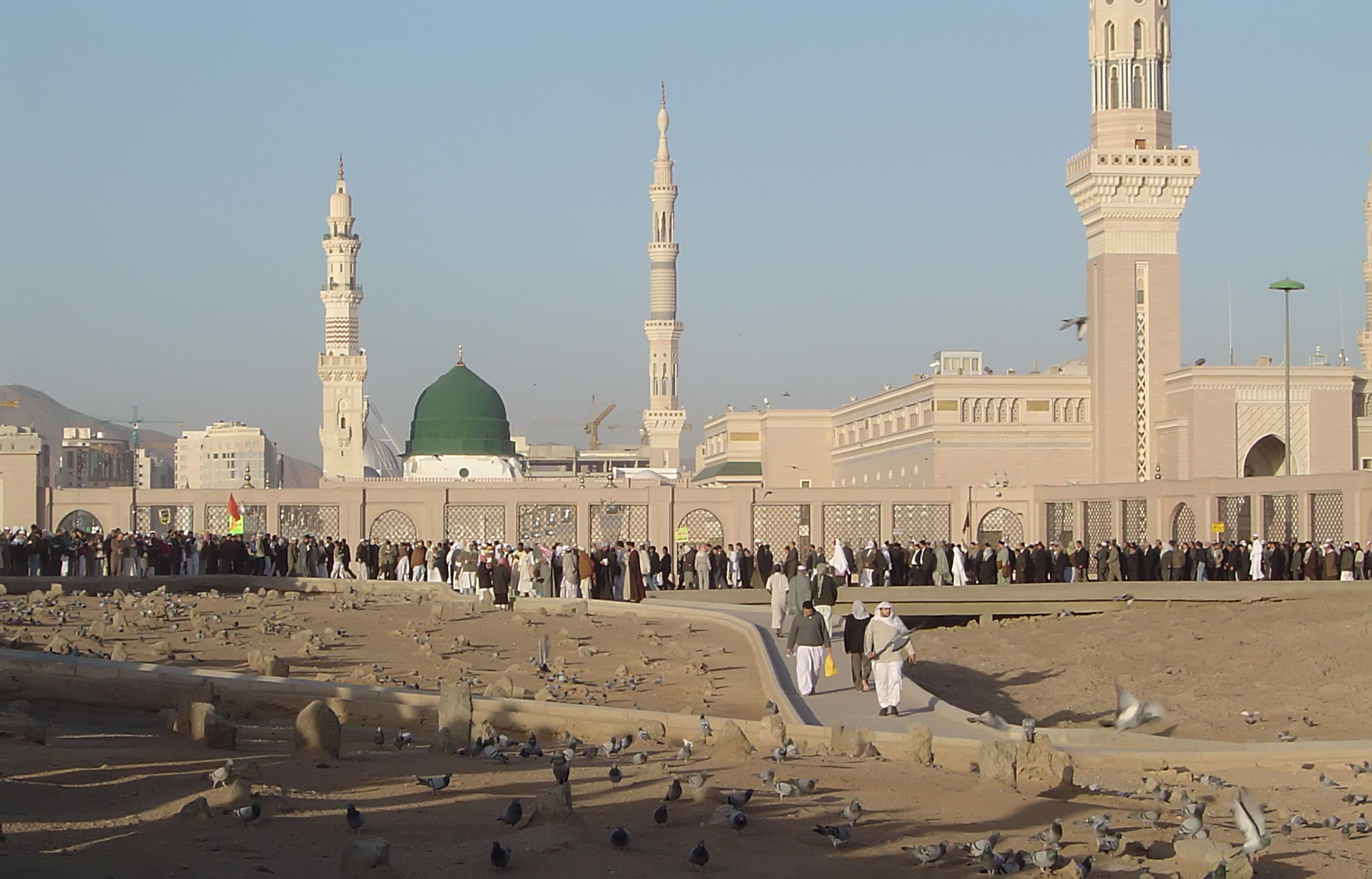
Failure to fulfill this fundamental minimum of the requirements of Islam testifies to the weakness of a person's faith. Those who do not comply with this minimum will be very severely punished in Eternal Life if they do not repent, do not make up for missed duties and are not forgiven by Allah Almighty. Whoever denies the need to observe the obligatory prescriptions of Allah or one of the pillars of Islam becomes an unbeliever.
In addition to the above five pillars, there are many other precepts in Islam that must be observed by every person. For example: honoring parents, maintaining warm relations with relatives, observing duties and rules of decency towards neighbors, showing respect for older people, showing mercy and compassion for younger ones, etc.
There are also prohibitions in Islam. For example, the prohibition on committing such grave sins as killing a person, adultery, theft, drinking alcohol, drugs, usury, gossip, slander, slander, envy, enmity, causing harm to others with the tongue or physically, oppression of the weak, appropriation or use of someone else's property, etc. A person needs to move away from such deeds, as well as repent of previously committed ones, for if Almighty Allah does not forgive him, then a severe and unbearable punishment awaits him in eternal life. May Allah Almighty protect us from this! Amen!
The amount of reward intended for a Muslim for the fulfillment of these instructions depends on the number of these deeds, sincerity, thoroughness and diligence shown in their implementation.


